How Sweet the Sound - BSN/HN/PN
Composer: Banzhoff, Drew
Publisher: TrevCo
Edition: 71867
$18.00
How Sweet the Sound
for bassoon, horn, and piano
by Drew Banzhoff - American composer
ABOUT THE MUSIC
Most will likely recognize the title of this piece as the text that follows the words “Amazing Grace” in the hymn of the same name. I had known (deep in the back of my mind) that I might someday explore this hymn as the subject of one of my compositions, but by nature of a few chance events, it almost seemed that this hymn was trying to find a way to reveal itself to me in a rather unexpected way.
When an opportunity arose wherein it was requested that I write a piece inspired by “Amazing Grace,” I was initially hesitant, as there are countless adaptations, arrangements, compositions, and art pieces that quote or are inspired by this hymn and its musical tune of “New Britain.” Wanting to make a product that would satisfy my personal artistic wishes, I knew I needed to carry out some additional research on this hymn and tune to make the most informed musical decisions possible. Little did I know how unprepared I was for the discoveries I would make (of which I barely scratch the surface with this piece):
As popular as this hymn has become worldwide (and especially in the United States), I slowly began to realize that I knew next to nothing about the author and genesis of how this hymn came to exist. “Amazing Grace” was written by English poet (and eventual clergyman) John Newton (1725-1807) as a reflection on his life story and personal journey of faith. Newton was not born a Christian or raised in a Christian household, and, according to both his personal testimonies and from the accounts of other individuals who knew him, Newton led his early life as a boy and young man who was constantly in trouble with his superiors and who partook in activities that were harmful to both himself and others. These activities and behaviors varied, but Newton would retrospectively reflect on one particular aspect of his life that he would ultimately strive to later work against: his involvement in the Atlantic slave trade of the 18th Century.
Newton (as did many of his contemporaries) built a successful career out of this line of work, himself serving on ships as an official of higher rank. In this position, Newton partook in and permitted his crews to carry out and supervise the forced labor, confinement, physical and psychological abuse, torture, rape, and murder (among countless other atrocities) of enslaved peoples on many journeys across the Atlantic Ocean. Not thinking much of these actions at the time they occurred, Newton’s life was forever changed after a particularly striking incident:
One evening, in the waters of the northern Atlantic, Newton was serving on a vessel that had found itself surrounded by a massive storm. The ship was heavily battered by severe weather, and at multiple points came very close to capsizing. Many of the crew were nearly thrown overboard and narrowly escaped death. Newton, unsure if he would survive the evening, repented, and called out to God in an act of desperation, begging for mercy. Newton would later claim that this act of what he viewed as a release of his former self and submission to the omnipotent power of God kept him alive through this experience, which served as a catalyst for his eventual conversion to Christianity and later work as an abolitionist. Reflecting on his journey from leading a life as a sinner to finding new purpose and a calling as a clergyman who changed his ways, Newton wrote the words “Amazing Grace! (How sweet the sound) That saved a wretch like me. I once was lost but now am found, was blind but now I see...”
“How Sweet the Sound...” is a musical illustration of the dark historical undertones and storm at sea that would change the course of John Newton’s life and produce a hymn that has inspired millions of people around the world. Upon discovery of this event and the history of John Newton and his conversion, I found myself needing to ascribe this somewhat misleading title (if viewed within the context of the music I have written) to communicate the importance of the genesis of this hymn as one of a less-than pretty nature. Yet, I also found new understanding in that John Newton’s choice to renounce his sinful ways and lead a life in service of his faith and to the betterment of all people holds a particular significance to the larger stories of hope and spiritual transformation that convey large amounts of the underlying message of the text of “Amazing Grace.”
Duration: app,, 5 minutes
Premiere Performance
Black Mountain, North Carolina, United States of America, 5th February 2023, Sunday Worship, Black Mountain Presbyterian Church, Aaron Price, Music Director, Stephanie Tripp, Bassoon, Aaron Price, Piano, with the composer on Horn.
-Drew Banzhoff

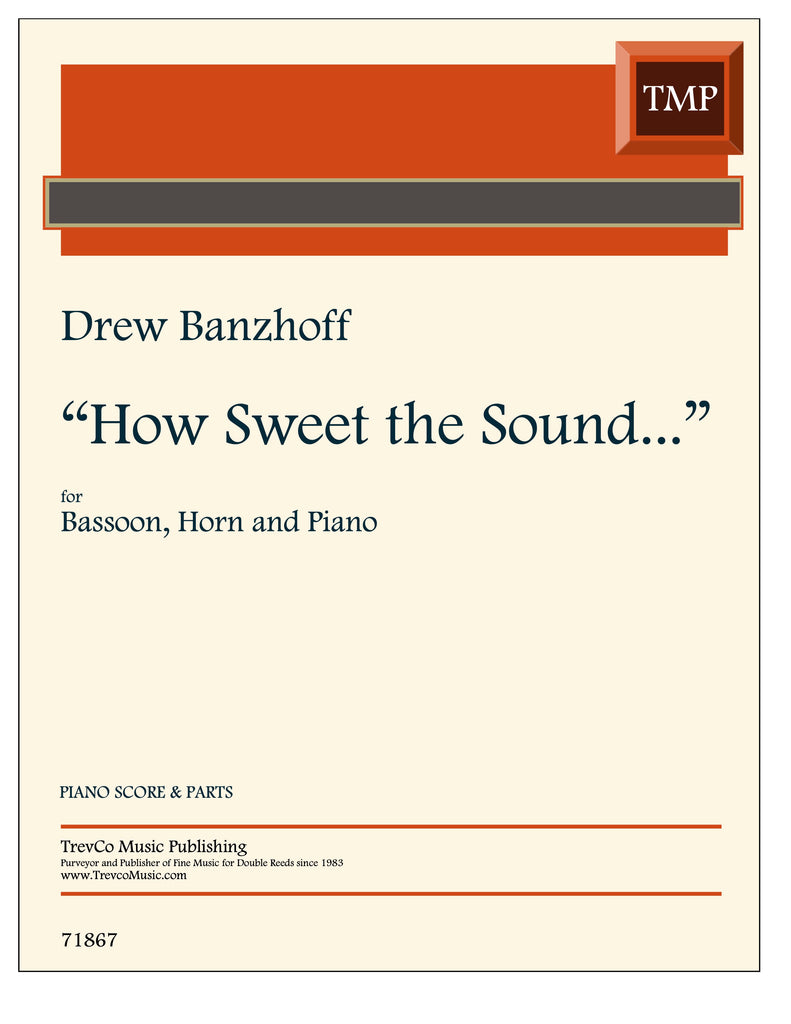
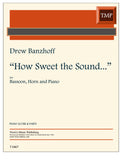
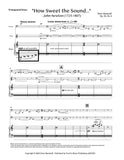
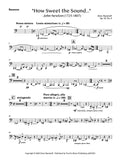
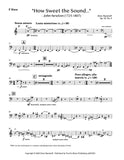
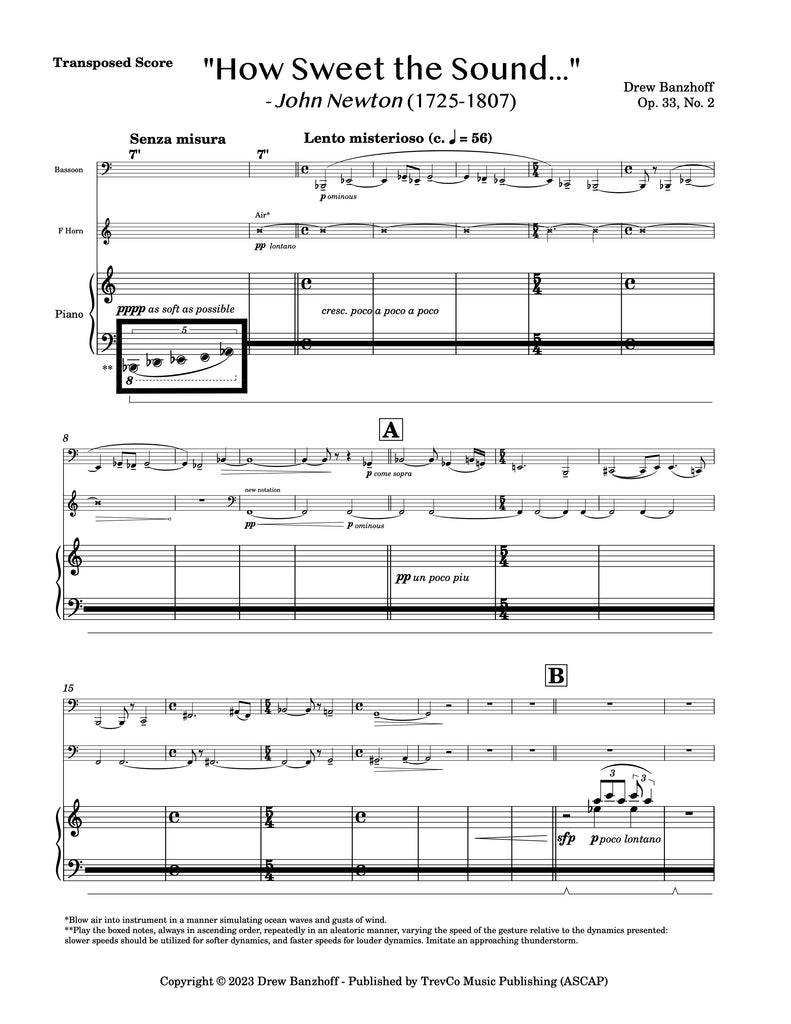
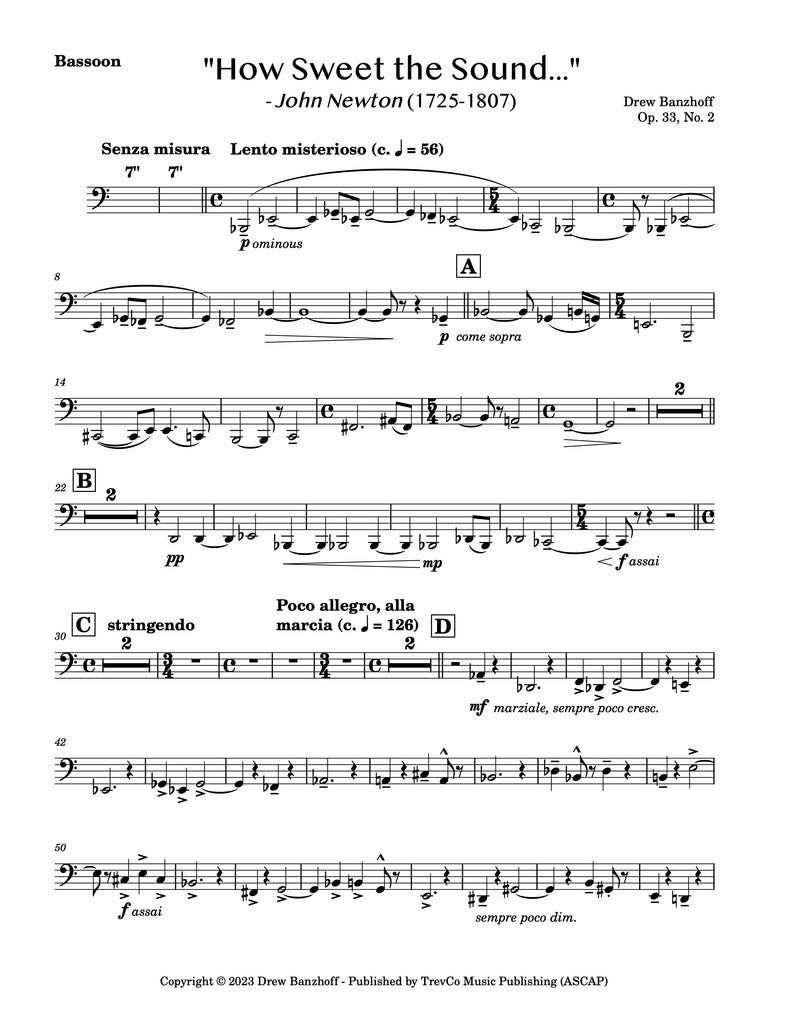
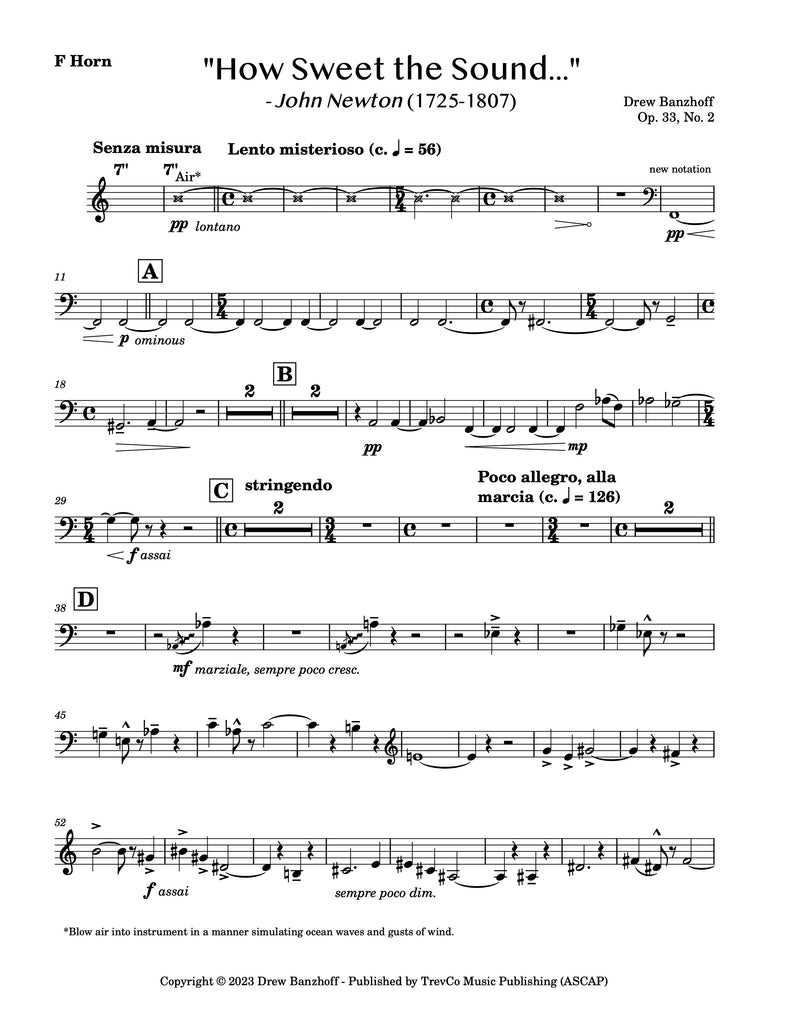
Share this item: